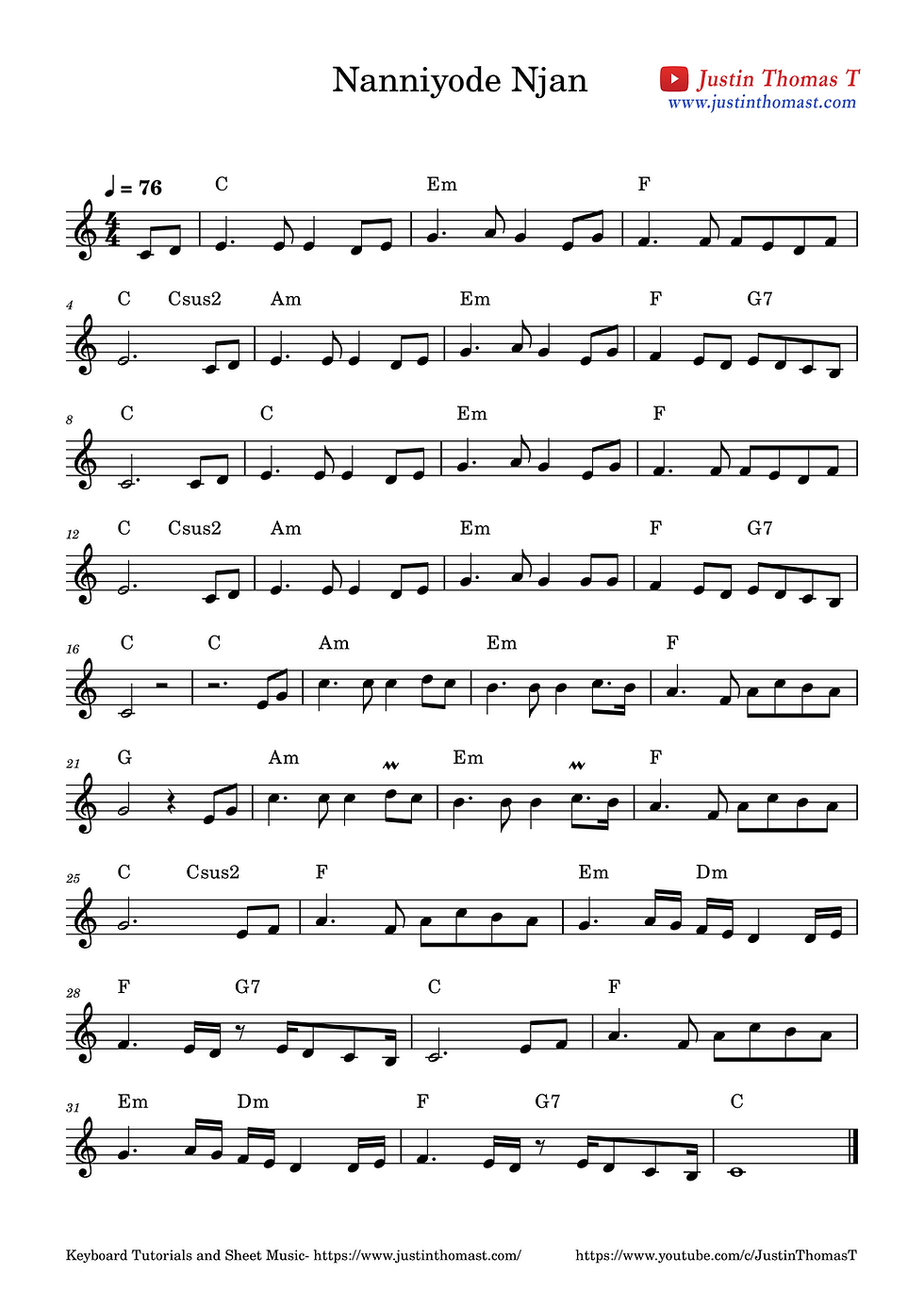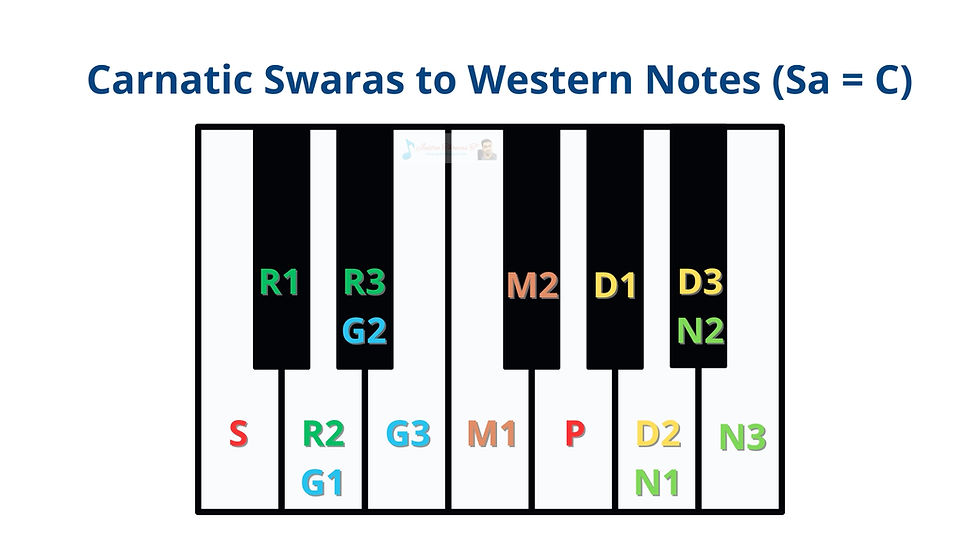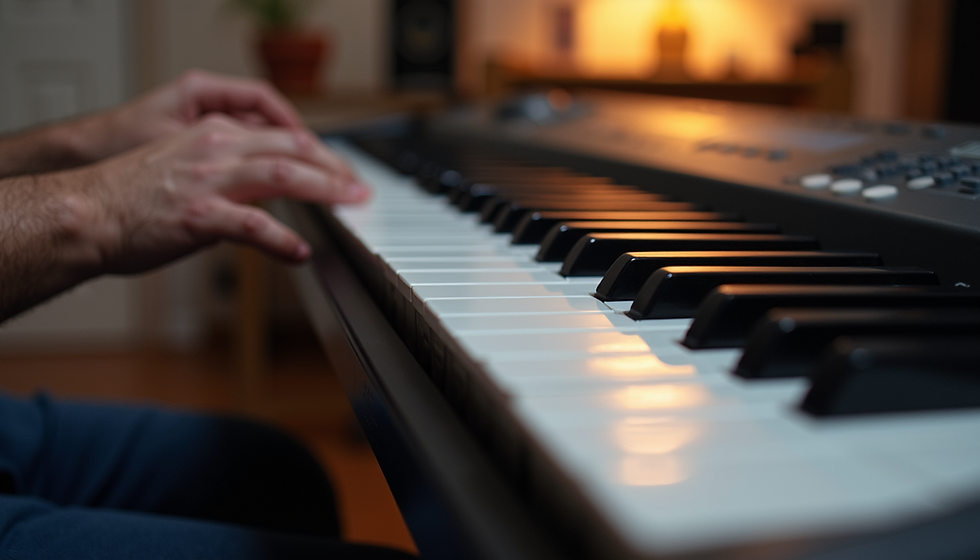How to Start Playing Simple Sheet Music for Beginners
- Justin Thomas

- Jun 7, 2025
- 4 min read
Starting your musical journey can be exciting yet overwhelming. Many budding musicians aspire to play simple sheet music but do not know where to begin. This guide aims to simplify the process, helping you navigate the world of sheet music while ensuring enjoyment along the way.
Understanding Sheet Music Basics
Sheet music is a written representation of music. It communicates the pitch, rhythm, and timing involved in a piece. Each note corresponds to a specific sound that you will produce on your instrument, whether it is a piano, guitar, or any other.
Here are some essential elements to know:
Staff: The foundation of sheet music, typically consisting of five lines and four spaces.
Notes: The symbols placed on the staff that indicate the pitch you should play.
Clefs: Symbols at the beginning of the staff that tell you what notes correspond to which lines or spaces (e.g., treble clef, bass clef).
To effectively read music, familiarize yourself with these basics. Start by recognizing how different notes look and sound.

Finding Simple Sheet Music
For beginners, finding pieces that are easy to play is crucial. There are countless resources online where you can access simple sheet music. Websites, music books, and online forums are excellent starting points. Look for beginner sections that offer well-known songs.
One popular choice for musicians is the classic children's song, which many remember from their childhood: "twinkle twinkle sheet music." This piece is not only simple but recognizable, making it a great choice for practice.
Recommendations for Finding Music
Online Resources: Websites such as JustInThomast provide various beginner sheet music pieces. You can find “twinkle twinkle sheet music” and others that suit your level.
Books: Seek out beginner piano or guitar books that are specifically designed for novices. They often feature simple songs to help you progress.
Music Apps: Many apps offer sheet music and have interactive features to aid learning.
Learning to Read Notes
Once you have selected the sheet music, focus on learning to read the notes. This skill will be fundamental as you progress. Here’s a step-by-step approach:
Start with the Basics: Identify the lines and spaces on the staff. For example, in the treble clef, the spaces spell “FACE,” while the lines represent “EGBDF.”
Practice with Flashcards: Create flashcards for different notes. This method reinforces your memory and helps you recognize them quickly.
Play by Ear: Trying to play simple tunes by ear can be helpful alongside reading notes. This will develop your listening skills and pitch recognition.
Select Repetitive Patterns: Many simple songs have repetitive melodies. Focus on these patterns, as they will help build your confidence.

Piano Techniques for Beginners
If you are learning to play the piano, certain techniques can make the process easier. First, always maintain relaxed hands to avoid tension.
Fingering Techniques:
Use the correct fingers for each note. Introductory pieces often suggest fingering, so pay attention.
Practice scales and simple exercises to improve your dexterity.
Posture Matters:
Sit at the correct height for your instrument.
Position your hands above the keys, ready to play without stretching or straining.
Practice Regularly:
Aim for short but consistent daily practice sessions, even for 15-30 minutes. This will yield better results than infrequent long sessions.
Establishing a Routine
Creating a practice routine is vital to success. Daily practice helps establish muscle memory and enhances your skills. Here’s how to set up a productive routine:
Set Clear Goals: Determine what you want to achieve each week or month. Goals like learning notes, mastering a specific piece, or improving speed can be beneficial.
Incorporate Variety: Mix different types of music to maintain interest. Rotate between pieces, scales, and exercises to keep things fresh.
Record Your Progress: Keep a log of your practice sessions. Note the pieces you worked on and any improvements. This will help you stay motivated.
Engage with Community: Join local music groups or online forums. Engaging with others can boost your learning and provide valuable feedback.
Staying Motivated
Learning to play music can sometimes feel overwhelming or frustrating. Here are some strategies to maintain enthusiasm:
Celebrate Small Wins: Whether it’s mastering a new note or playing a song through, acknowledge your progress.
Play Along with Recordings: Listen to the songs you are learning and try playing along. This adds excitement and helps you get the timing right.
Explore Different Styles: Don’t limit yourself to one genre. Explore classical, pop, jazz, or even movie scores to find what resonates with you.
Perform for Friends and Family: Sharing your music, no matter how simple, can be rewarding. It creates a sense of accomplishment and builds confidence.
Discovering Advanced Techniques
As you progress, you may want to explore more advanced techniques. Here are some skills to consider as you grow:
Reading Ahead: Learn to read music a few notes ahead of what you are currently playing. This skill will help you develop fluency.
Using Dynamics: Understand and apply dynamics (louds and softs) to your music. It adds emotion and depth to your playing.
Experimenting with Improvisation: Once comfortable, try creating your melodies. This will encourage creativity and make playing more enjoyable.
Studying Theory: Basic music theory can enhance your understanding of structure and harmony, improving your overall musicianship.
Embracing the Journey
Music is a lifelong journey. Whether you're starting with simple sheet music or preparing to tackle sophisticated compositions, remember that persistence is key. Celebrate your progress often and enjoy the process of learning.
Ultimately, playing music should bring joy. Stay curious and open-minded as you develop your skills. Your passion and dedication will lead you to outstanding musical experiences.
Begin your journey today and rejoice in each step!



Comments